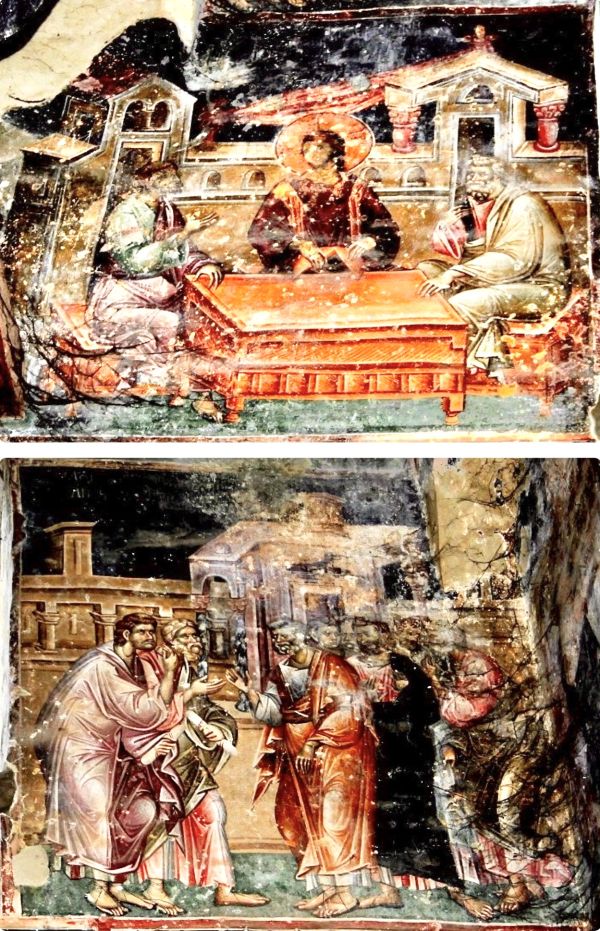(Lk 24:13-35)
After first persecutions (64), the bloody civil war in Rome (68-69) and the destruction of Jerusalem’s Temple (70), the empire rebels tended to decrease - together with the second generation Christians, direct witnesses of the Apostolic teaching.
In this reality, completely new and threatened by the danger of routine, perhaps more than a dozen years after the fall of Masada (73), Lk draws up a Gospel for converted Hellenists - but educated to the ideal of a ‘Greek man’.
Its purpose was to put a stop to defections, encourage new faithful, allow those who were culturally distant to have a living experience of the Lord.
The Risen One has a Life that is no longer subject to the senses, because Full.
Now it’s the community that manifests Him Present [or - unfortunately - useless and absent].
Conditioned by a false vision inoculated by bad teachers and pagan values, the disciples still felt bewildered in the face of “failure”.
The expectations of religion, of philosophies, of life in the empire, made them gloomy and disoriented during the tests of Faith.
Everyone was waiting for the «divine man»: ruler, possessor, revered, avenger, titled and super-affirmed. Able to drag his associates to the same “fortune”.
Lk overturns the banal perspective, because within each of us there is an innate wisdom, sometimes suffocated by external ideas, but different.
Only another intelligence of the Holy Scriptures that still resound full of critical prophecy - warms our hearts and makes us recognizable in Christ.
Wisdom that’s combined with the quality of life experienced in a multifaceted and indigent fraternity, but which doesn’t abandon anyone.
In fact, in the authentic church, the synergy of differences and opposite sides configures a ‘new covenant’; opens the eyes to all, intensely manifesting the Son.
And the Risen One does not cling to the latest arrivals in a paternalistic way (vv.28.31) but calls with confidence to reinterpret Him in love, without borders and identified roles.
His Presence in spirit and deed allows anyone a coined-broken life caliber without prior conditions of completion.
Hence the Return (v.33) and personal Announcement (v.35), instead of indifference or flight.
The passage from Lk is one of the most profound testimonies of the Passover of Jesus.
The tragedy of the Cross frightens, so does failure. But we do not frankly meet the Lord as an executioner, or in the fervor of a victorious war.
Christ is not a colonel. Liberator yes.
The new dreamed order will not be artificial, procedural, external; nor achieved with military triumph: it would disown Him.
We meet the Risen One outside the tomb, we grasp Him on a journey and in the authentic meaning of the «living Scriptures»; in the «Bread breaking» that illuminates the sense of ecclesial life.
We personally «see» the ‘Son raised’, building up the new community of disciples that blossom because of the reverses - so that the sisters and brothers can also meet with Easter.
Apostles not lost in history.
In their «incessant beginning» there is a ‘discovery’ and something special, abnormal, irrepressible; that lays continuous foundations.
To internalize and live the message:
When have you experienced a Jesus who gently approaches and takes your step? Is the Cross a catastrophe for you?
[Wednesday between the Easter Octave, April 23, 2025]












